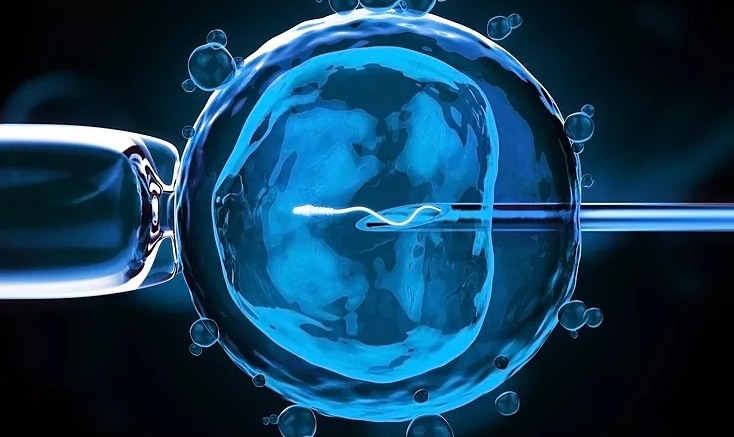IVF (In Vitro Fertilization)
In Vitro Fertilization is an infertility treatment using the assisted reproductive technology. It is to extract egg and sperm then let them fertilize outside human body spontaneously. When the embryo is well-developed, it will be transferred to the uterine cavity. In order to bring about the pregnancy later on. This treatment is suitable for couples who are facing fertility problems not much seriously.
Couples who should attend the infertility treatment with IVF program:
- Age over 35 years
- Female with blocked or damaged fallopian tubes
- Male who has severe sperm abnormalities including low sperm count, poor sperm motility.
- Couples who have been struggling for conceiving more than 3 years but the cause of the infertility problem is still unknown.
- Couples who have failed from IUI (Intra-Uterine Insemination) program.
IVF Process
- Blood test for monitoring hormone levels and ultrasound to check the readiness before the ovarian stimulation. On 2nd – 3rd day of period, patient will be prescribed the abdominal injection to stimulate eggs. This injection needs to be taken everyday for 10-14 days approximately.
- When the eggs are fully matured, patient will receive another injection for inducing ovulation. Then the doctor will schedule the transvaginal ovum retrieval (egg pick up).
- On the ovum retrieval day, both husband and wife need to visit their fertility treatment center. Wife will have a transvaginal egg removal while husband who has already refrained from ejaculation for 3-4 days before the ovum retrieval day will be collecting the sperm. In some cases, husband may collect the sperm previously by freezing. Then submit it to the fertility specialist on the egg pick up day.
- Sperm will fertilize with egg until becoming an embryo. Inside the laboratory, the embryo will be raised and will grow up successfully under the care of embryologist.
- Wife will receive the embryo transfer within 3 – 5 days after the ovum retrieval. (In case of fresh cycle)
- If the doctor suggests embryo freezing in order to allow female uterine rehabilitation after taking a 1-2 months break. Or some cases are waiting for their results of the embryo’s genetic testing. Therefore, doctor will prescribe some uterine preparation medications then plan and schedule the upcoming embryo transfer which is frozen cycle consequently.
- About 10 days after the embryo transfer, female will visit the treatment center again to proceed blood drawing for pregnancy test.
ICSI (Intracytoplasmic Sperm Injection)
ICSI (Intracytoplasmic Sperm Injection) is an in vitro fertilization procedure with the laboratory technology. Both IVF and ICSI are comprising of similar procedures. But the difference is how sperm will fertilize an egg. In ICSI program, only one best sperm cell will be selected then injected directly into a fully matured egg. Patients will be prescribed some hormonal medications. Stimulating ovaries to produce several eggs. ICSI can make a pleasant fertilization rate. As well as reduces some fertilization problems or abnormalities caused from egg and sperm. For examples: multiple sperm fertilize an egg, sperm cannot penetrate the egg. The combined egg will transform to be an embryo after fertilization. Next, the embryo will be raised and will grow up among the appropriate environment inside a laboratory. Finally, the embryo will be transferred to the uterine cavity in order to implant then develop to be the fetus later on.
Couples who should receive the infertility treatment with ICSI program:
- Female’s age more than 35 years
- Stenosis for both sides of the fallopian tube
- Severe Endometriosis
- Estrogen dysfunction for examples: Chronic Anovulation, PCOS (Polycystic Ovary Syndrome)
- Severe sperm abnormalities including sperm morphological defect, low sperm count, poor sperm motility
- Male who is sterile or had a vasectomy but the body can still produce sperm. To extract sperm under this limitation, a surgical procedure will be performed such as PESA, TESA, TESE.
- Couples who have failed from every previous IVF cycle
- Couples who prefer to screen the embryo’s genetic diseases

